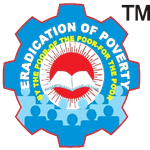Corruption Matters in Ending Poverty
"At Corruption Matters, we understand that tackling corruption is essential for ending poverty. Corruption diverts resources away from those in need, perpetuates inequality, and undermines development efforts. Through transparency, accountability, and collective action, we can break the cycle of corruption and pave the way for a future where poverty is no longer a barrier to human potential. Join us in the fight against corruption and poverty today."
Corruption hurts everyone, especially those who are already struggling. When people in power abuse their positions for personal gain, it takes away resources that could be used to help the poor. Here’s why fighting corruption is so important in ending poverty

- Diversion of Resources: Corruption diverts resources away from essential services such as healthcare, education, and infrastructure, which are crucial for poverty reduction. When funds meant for poverty alleviation programs are embezzled or misappropriated, it directly impacts the ability of governments to provide for the needs of their citizens, perpetuating cycles of poverty and inequality.
- Impact on Development Projects: Corruption undermines the effectiveness of development projects aimed at poverty alleviation. Whether it’s through bribery, kickbacks, or nepotism, corrupt practices distort decision-making processes and result in projects that are inefficient, low-quality, or fail to reach the intended beneficiaries. This not only wastes valuable resources but also undermines trust in public institutions and erodes confidence in development efforts.
- Exacerbating Inequality: Corruption disproportionately affects the poor and marginalized, deepening existing inequalities within societies. When access to basic services and opportunities is determined by one’s ability to pay bribes or connections to corrupt officials, it further marginalizes those who are already struggling to make ends meet. Addressing corruption is therefore essential for promoting social justice and ensuring that everyone has equal access to opportunities for prosperity.
- Undermining Rule of Law: Corruption erodes the rule of law and weakens institutions that are essential for promoting transparency, accountability, and the protection of human rights. When corrupt individuals go unpunished or are able to influence judicial processes through bribery or coercion, it undermines the credibility of the legal system and fosters a culture of impunity. This not only perpetuates corruption but also undermines efforts to uphold human rights and promote good governance.
- Building Trust and Accountability: Anti-corruption measures are essential for building trust between governments and citizens and fostering a culture of accountability. By strengthening institutions, promoting transparency, and holding corrupt individuals accountable for their actions, governments can demonstrate their commitment to serving the public interest and restoring faith in the integrity of public institutions. This, in turn, creates an environment conducive to sustainable development and poverty eradication.
- International Cooperation: Addressing corruption requires international cooperation and collaboration, as corruption often transcends national borders and involves multiple actors, including multinational corporations and illicit financial flows. Through initiatives such as the United Nations Convention against Corruption (UNCAC) and the implementation of anti-money laundering measures, countries can work together to combat corruption and prevent the illicit transfer of funds that contribute to poverty and inequality.
- Empowering Civil Society: Civil society plays a crucial role in holding governments accountable and advocating for transparency and integrity in public affairs. By empowering civil society organizations, promoting freedom of expression and access to information, and ensuring the protection of whistleblowers and anti-corruption activists, governments can benefit from the expertise and oversight of civil society in their efforts to combat corruption and promote poverty eradication.
